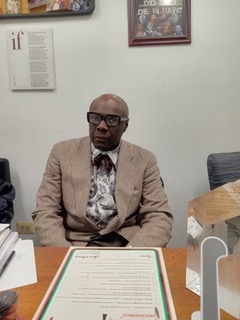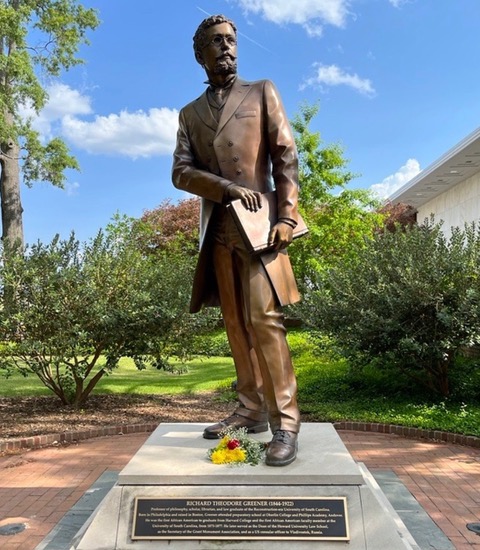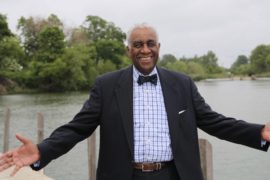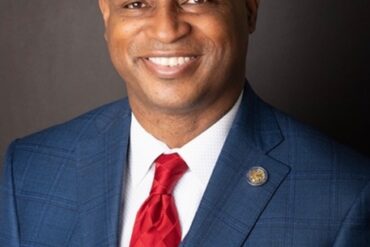In 2018, the University of South Carolina erected a larger-than-life bronze statue of Richard Theodore Greener outside the Thomas Cooper Library to honor his legacy. (Photo Courtesy of Instagram)
The son of a sailor, Richard Theodore Greener, a native of Philadelphia, Pennsylvania, lived in Boston, Massachusetts, and Cambridge as a child but received his secondary education at Phillips Academy in Andover, Massachusetts, and Oberlin College in Oberlin, Ohio.
He attended the Broadway Grammar School in Cambridge, Massachusetts, until he was fourteen, then dropped out of school to help support his family, working as a porter, clerk, and night watchman in various jobs.
Mr. Greener attended school with help from two of his employers, and they arranged for his admission to Harvard in 1865 as an experiment in the education of African Americans.
In 1870, Mr. Greener graduated from Harvard University with honors, the first African-American to do so.
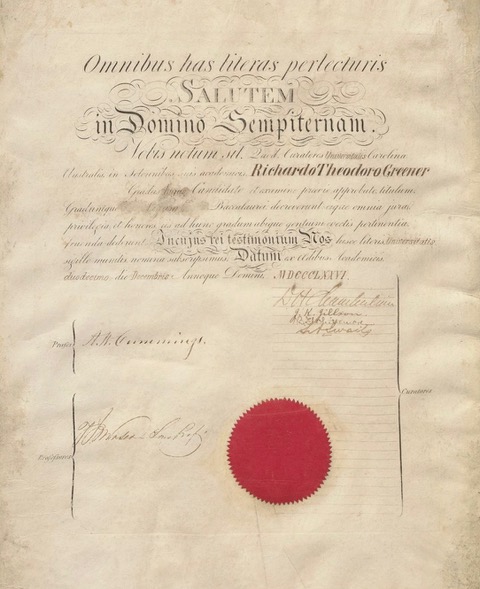
He entered Harvard in 1865 and 1870 became the first African American to receive an A.B. degree from the institution. During Reconstruction, he was the first Black faculty member at a Southern white college, the University of South Carolina. A notable speaker and writer for racial equality, he also serves as a dean of the Howard University Law School and the administrative head of the Ulysses S. Grant Monument Association.
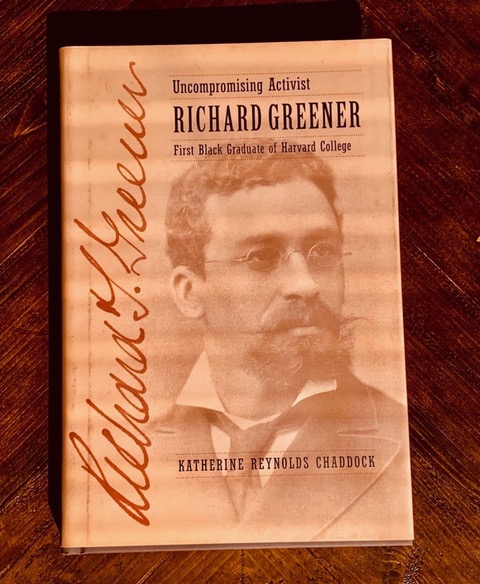
In 1911, Richard Greener was introduced to an audience as ‘the first colored graduate of Harvard,’ ‘ex-Consul to Russia,’ and ‘the most learned man the Negro race has produced.” A century later, distinguished professor/author Katherine Reynolds Chaddock wrote Uncompromising Activist Richard Greener, First Black Graduate of Harvard College, citing that few have heard of him. Drawing on an impressive range of personal papers and periodicals, she uncovers a life marked by insights into what Greener called
‘that damnable American ghost,’ race.
Chaddock stresses one lesson Greener learned as Harvard’s only Black student: “Acceptance across racial boundaries was crucial to having a favorable experience.” That lesson developed into a willingness to work with whites and an opposition to segregation, both of which put him at odds with many Black leaders. His Black friends and colleagues often accused the light-skinned Greener of trying to pass because of his acceptance from white people. While he was overseas on a diplomatic mission, Greener’s wife and five children stayed in New York City, changed their names, and vanished into white society; he never saw them again. Chaddock states in her book that Greener lost not only his family but also his sense of clarity about race.
Greener retired to Chicago, where he spent most of his time writing and lecturing. He later died in obscurity in 1922; his name is barely remembered.
N’DIGO sat with Anthony Green, the great-great-great-grandson of Richard Greener, and discussed what his legacy means to him.
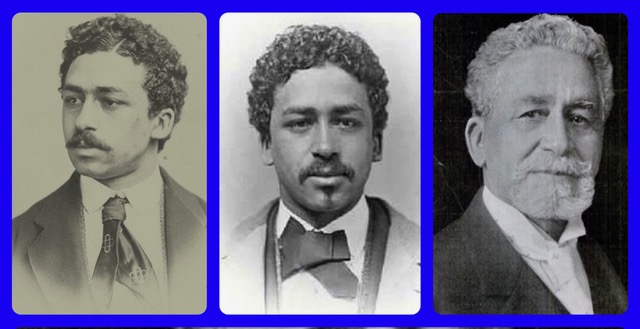
N’DIGO: Your great-great-great-grandfather, Richard Theodore Greener, was the first Black man to graduate from Harvard University. How has this impacted you?
Anthony Green: When I consider his life’s scope and impact on society, I see myself continuing the tradition of what he stood for: education and social justice.
What are some of his accomplishments?
My great-great-great-grandfather was a Professor at The University of South Carolina and the its first African American faculty member. His discipline was Mental and Moral Philosophy in 1873.
He taught International Law and Constitutional Law.
He organized the fundraising effort for President U.S. Grant‘s Tomb, The Grant Monument Association. It still exists today.
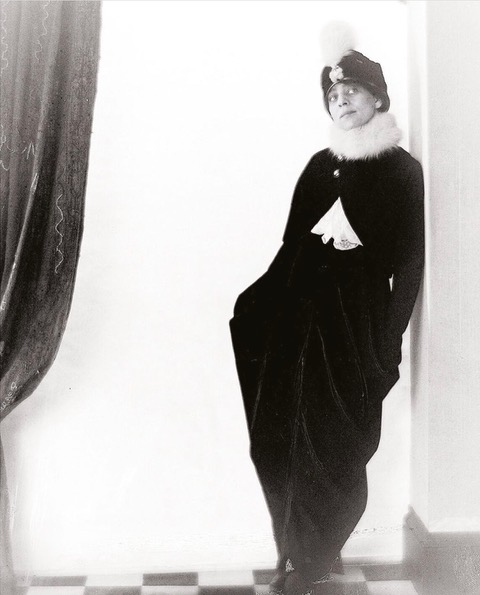
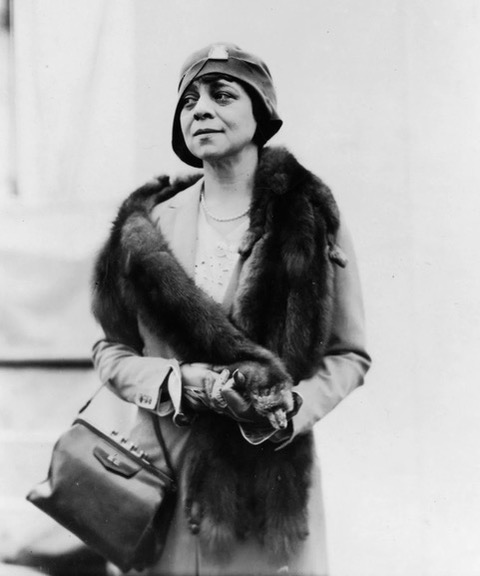
Your family changed their name from Greener to Green. Tell me about that.
His daughter, Belle da Costa, changed her name as she lived as a white woman. She worked for JP Morgan as his archivist. She was interested in historical documents.
She totally disassociated with her Black family. She was also a librarian at Princeton University.
How did your great-great-great-grandfather settle in Chicago?
He came here in 1905, where he had family. He worked for an insurance company and as a journalist and lectured about his life at Harvard University.
How did your paternal side of the family tell you about Greener?
My mother taught me about him. She was the keeper of the records. She knew why my family was here as early as the 1800s. She began to tell me about him when I was about ten years old. It was an oral history passed down that was stored in the Bible.
Do you consider yourself an aristocrat?
Yes, I do. It’s in my blood.
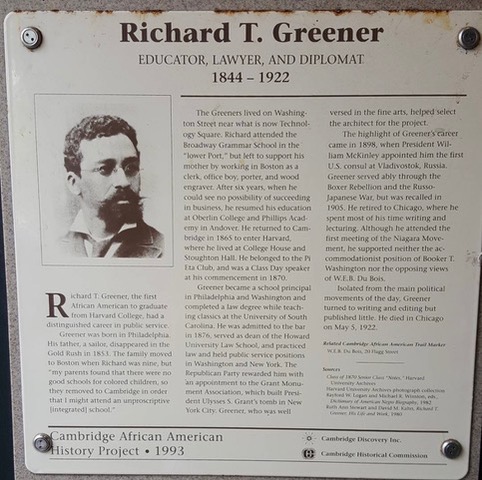
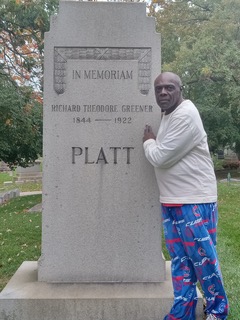
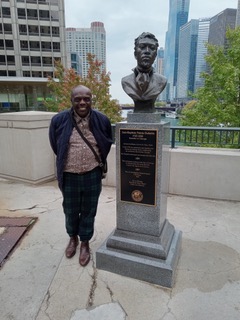
What have you done to preserve Mr. Greener’s legacy?
I have traveled to Andover, Massachusetts, and went to Phillips Academy, where he attended school. I met with the interim head of the school, and we discussed establishing a scholarship in his name. This is a work in progress. In 2022, I met with President Toni Preckwinkle, and she proclaimed a day in his name. This year, he will be honored by the country in a live program for Black History Month. We have received a proclamation from the City Treasurer, Melissa Conyears-Ervin. She issued a Resolution on his birth date. We have also received a Congressional Record from Congressman Danny Davis during the 117th Congress. A Resolution for the State of Illinois by Kam Buckner has also been issued.
How does Harvard recognize him?
Harvard has not done much; there are no bells and whistles. I am now responsible for meeting with the interim President to establish a scholarship. I want this to be part of the Law School.
What else are you doing to preserve his legacy?
We are working with former Governor Deval Patrick of Boston. He was the first Black governor of Massachusetts and is from Chicago. He is aware of Greener, and he is trying to establish something long-lasting.
What is the best way to honor and remember Greener?
Having the schools he was associated with endow scholarships in his name.
